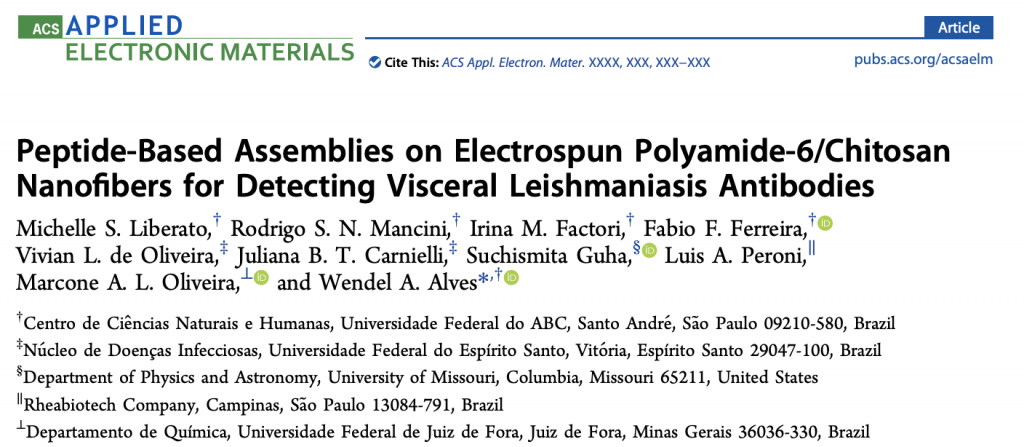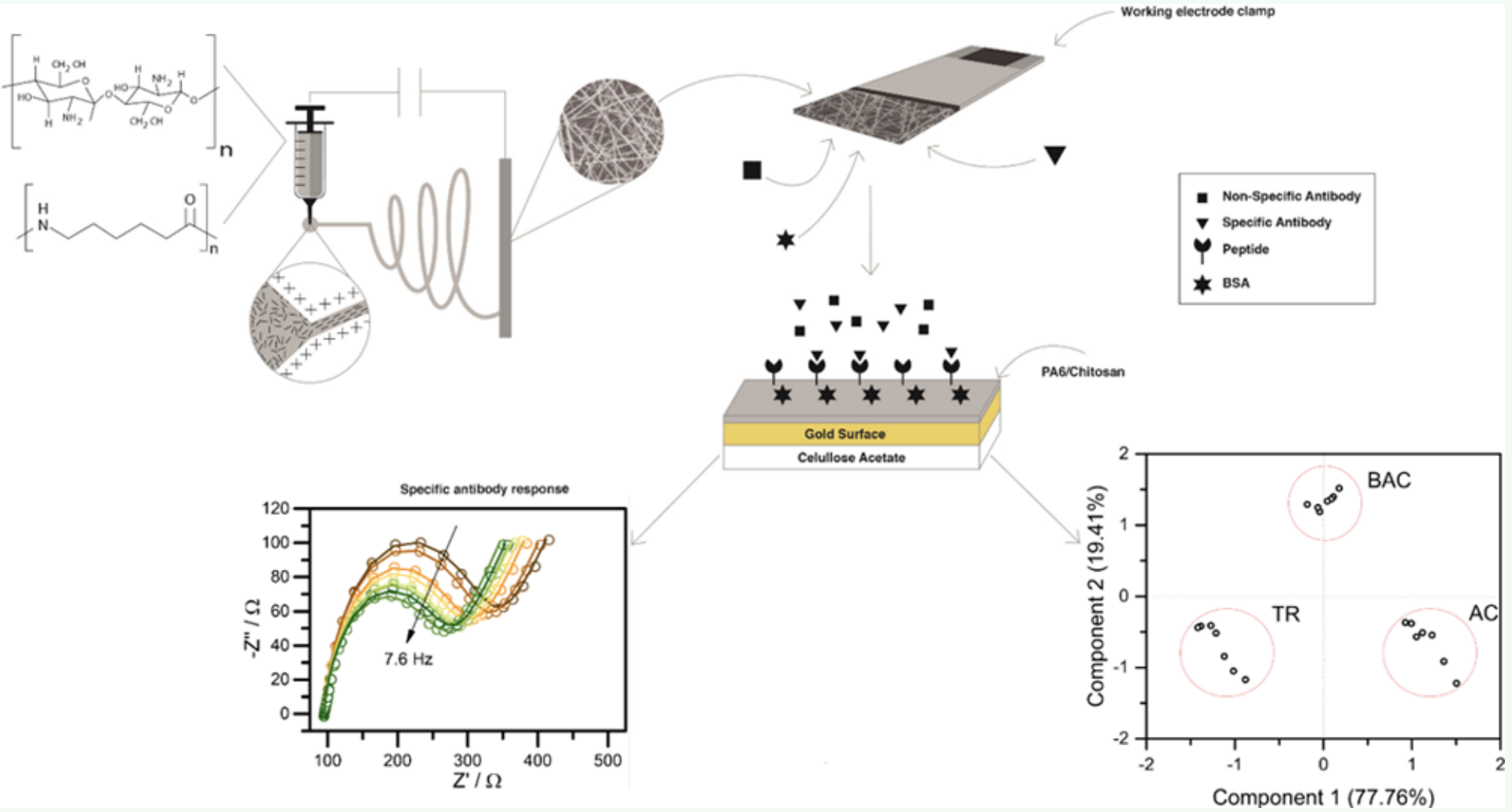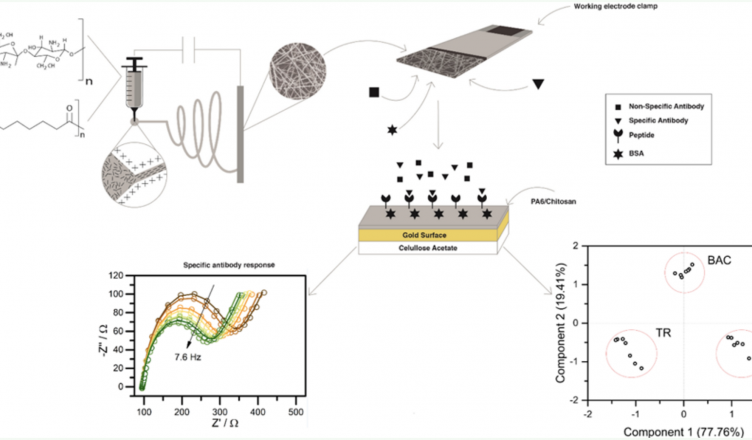Prof. Wendel Alves’s research group, in partnership with Rheabiotech Ltda, has developed a biosensor that uses a chitosan-based polyamide-6 polymer blend to immobilize an L. infantum-specific antibody recognition peptide sequence (ACS Appl. Electron. Mater. 2019, DOI: 101021/acsaelm.9b00476).
https://pubs.acs.org/doi/10.1021/acsaelm.9b00476

The blend was chosen due to the excellent properties of chitosan (biocompatibility) and polyamide (mechanical properties), being used in the immobilization of biomolecules, which are incorporated by electrostatic entrapment, preserving their structure and therefore their bioactivity even when compared to materials that are already used for such function. The work was promising, where it was possible to detect concentrations of the order of 1 pg mL-1 (while the ELISA reached 1 ng mL-1), discriminating clearly and objectively human serum samples contaminated with visceral leishmaniasis and healthy humans.



